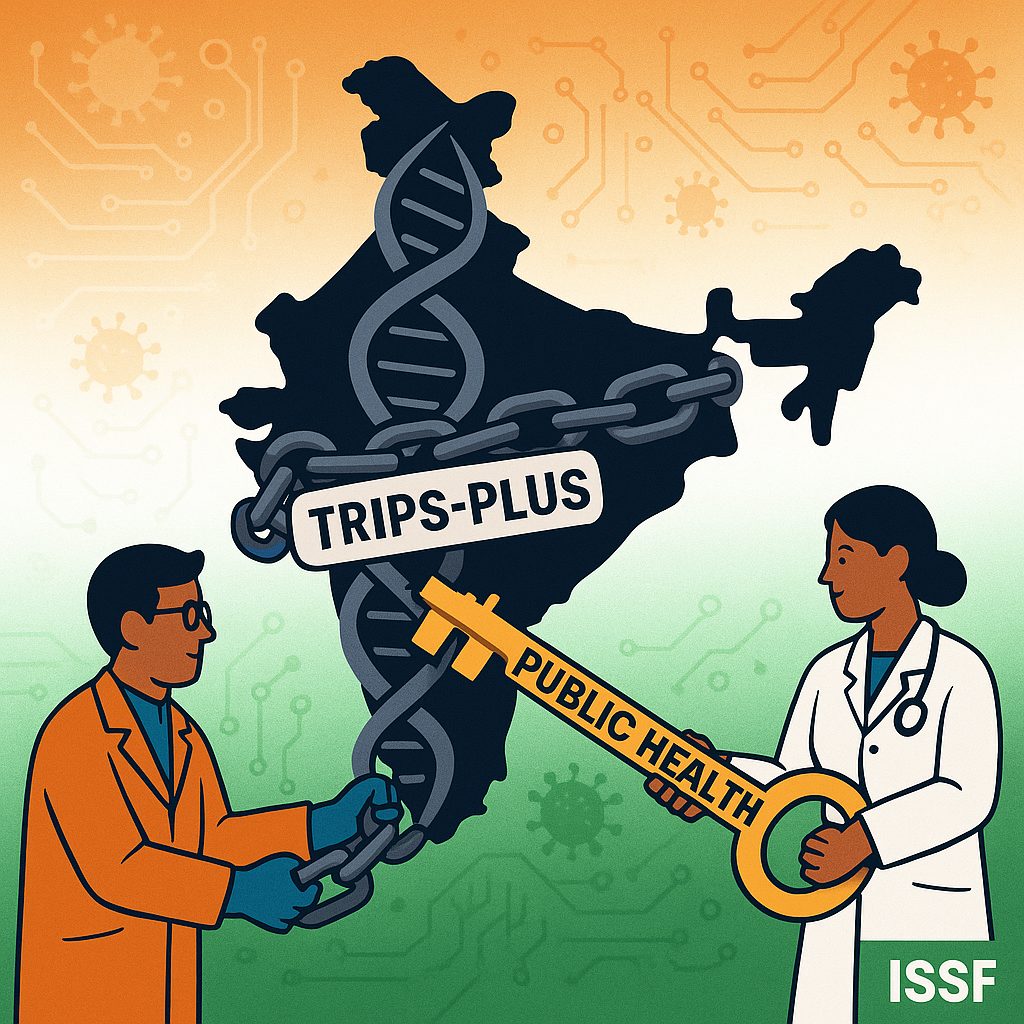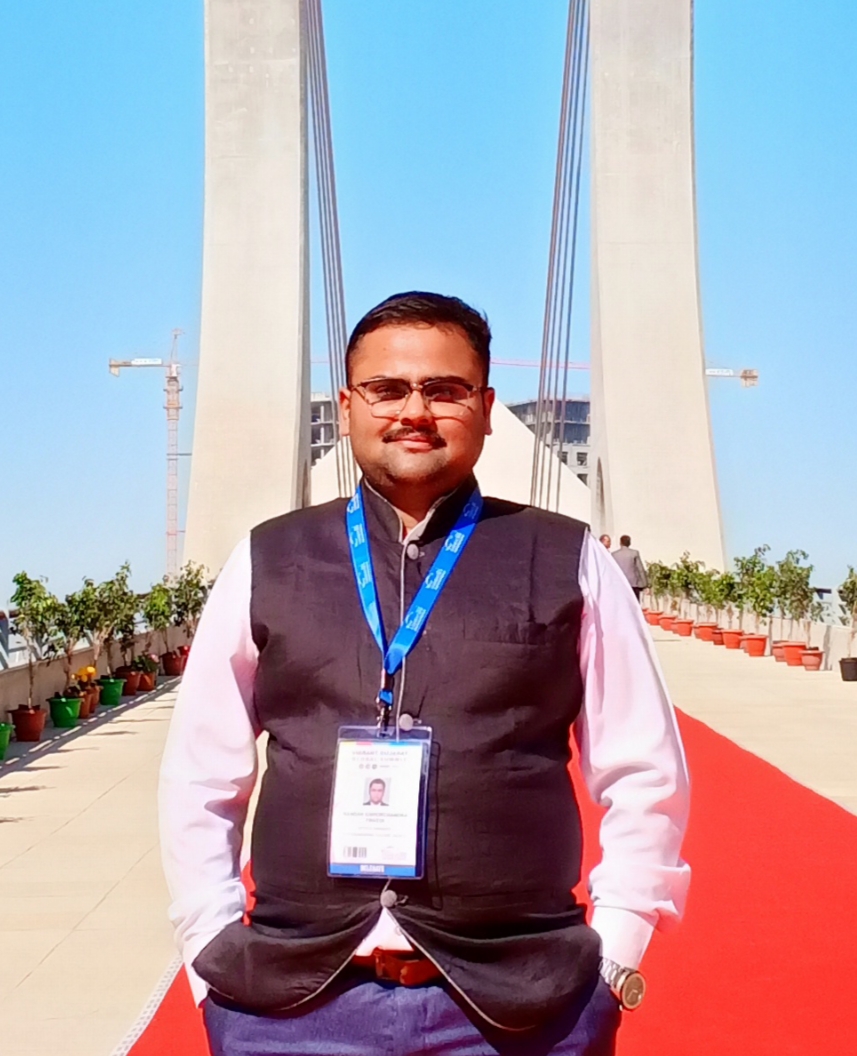The push for TRIPS‑Plus IP provisions threatens innovation and access to affordable healthcare worldwide

By Nandan Trivedi
India’s remarkable rise as a global pharmaceutical powerhouse is no accident—it is the result of strategic legal foresight, including a refusal to bow to overreaching global IP standards. Now, as India negotiates multiple Free Trade Agreements (FTAs) with the EU, UK, and EFTA, it faces mounting pressure to adopt so-called “TRIPS-Plus” clauses. These provisions go beyond the World Trade Organization’s TRIPS agreement and could undermine India’s patent law—particularly the pivotal Section 3(d) of the Indian Patent Act 1970—which has long shielded the country’s generic and biotech sectors from abusive patent practices.
The world cannot afford for India to backslide now.
TRIPS-Plus clauses, often pushed by the U.S. and EU in bilateral trade deals, typically include extended patent terms, data exclusivity for clinical trial results, and patent linkage systems. While these sound like routine trade issues, they strike at the heart of affordable healthcare and domestic innovation. Their effect is subtle but profound: they stretch monopolies on brand-name drugs, delay competition, and raise barriers for domestic manufacturers—particularly in sectors like biotechnology where affordability and access are already fragile.
Take Section 3(d) of Indian Patents Act 1970, for instance. This provision disallows patents for minor modifications of existing drugs unless the new version demonstrates significantly improved therapeutic efficacy. It was this clause that enabled the Indian Supreme Court in 2013 to deny Novartis a patent for a new form of its cancer drug, Glivec, because it offered no real clinical advantage. That single legal decision helped protect affordable access to life-saving medication for thousands of leukemia patients—not just in India, but in countries dependent on Indian generics.
But TRIPS-Plus rules aim to nullify precisely this kind of safeguard. Data exclusivity, for example, would prevent Indian regulators from approving generic drugs based on existing clinical data for several years, delaying affordable alternatives—even in the absence of a valid patent. Patent linkage could stop generic companies from entering the market until a patent dispute is resolved, weaponizing the legal system to stifle competition before it even begins. Patent term extensions—another common TRIPS-Plus ask—artificially stretch monopolies far beyond the standard 20 years, turning drug development into a prolonged game of legal gymnastics.
Critics argue that these rules are necessary to promote innovation. But in reality, they often protect profits more than progress. According to Médecins Sans Frontières, India supplies over half of the antiretrovirals used to treat HIV in low-income countries. If TRIPS-Plus clauses raise barriers to generic entry, the cost of treatment for millions could skyrocket, triggering global health setbacks. In Jordan, for example, medicine prices rose by 20% within four years (2002-2006) of entering a free trade agreement with the US following TRIPS-Plus rules. That’s not innovation—that’s inhibition.
Worse still, the adoption of TRIPS-Plus provisions could stifle India’s own biotech innovation. Indian biologics and biosimilars industry—predicted to be growing at over $12 billion in 2025 and more beyond—is built on legal flexibilities that encourage competition and reduce costs. Companies like Biocon and Zydus Lifesciences are breaking new ground in monoclonal antibodies, insulin analogs, and vaccine technologies. Imposing a Western-style IP regime could choke these advances, discourage startups, and sap investment from precisely the kinds of affordable biopharmaceutical breakthroughs the world needs.
Make no mistake: the stakes are not just national—they are global. India’s patent system doesn’t merely serve domestic interests. It underpins global access to medicines and plays a crucial role in the health security of the Global South. What happens in Indian courtrooms and negotiation rooms reverberates through hospitals from Nairobi to Manila.
That’s why India must stand firm in ongoing trade negotiations. It must refuse patent term extensions, reject data exclusivity, and push back against patent linkage. Past agreements, like those between the US and Jordan, show what happens when countries cave: generic competition declines, and medicine prices soar. The evidence is out there—it just needs political will to act on it.
Instead, India should demand public health carve-outs in trade agreements, similar to those adopted by countries like Brazil and South Africa. It should continue to invoke the Doha Declaration on TRIPS and Public Health, which affirms the right of WTO members to prioritize health over patents. It’s not a matter of flouting international norms; it’s about preserving the very flexibilities that TRIPS itself guarantees.
Moreover, India must double down on strengthening its domestic IP infrastructure. That means increasing transparency in patent examinations, training more examiners in biotech patentability standards, and expanding R&D support for homegrown innovators. The biotech sector is not just a regulatory frontier—it’s a strategic investment in national self-reliance and global leadership.
And let’s not forget, this is about more than just laws and molecules. It’s about human lives—about a son affording his mother’s cancer treatment, a daughter accessing insulin for her father, a rural health worker delivering vaccines sourced affordably from Indian labs. When Section 3(d) filters out frivolous patents, it does more than ensure legal clarity. It makes medicine accessible, innovation meaningful, and trade just.
This is not a call for India to reject international trade or innovation. It’s a call for balanced, ethical policymaking that safeguards innovation without sacrificing lives. The global pharmaceutical model is broken—and India, with its pragmatic legal tools, has offered a compelling alternative. Diluting those tools now would be a grave mistake.
As these trade talks progress, the government must remember: What it signs today will determine not only the future of Indian biotech, but also the lives of millions who depend on its affordable medicines. The world is watching. And the stakes have never been higher.

